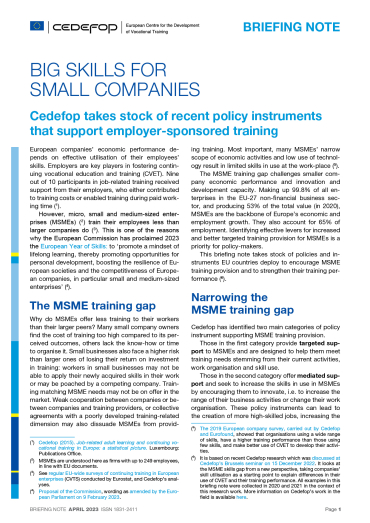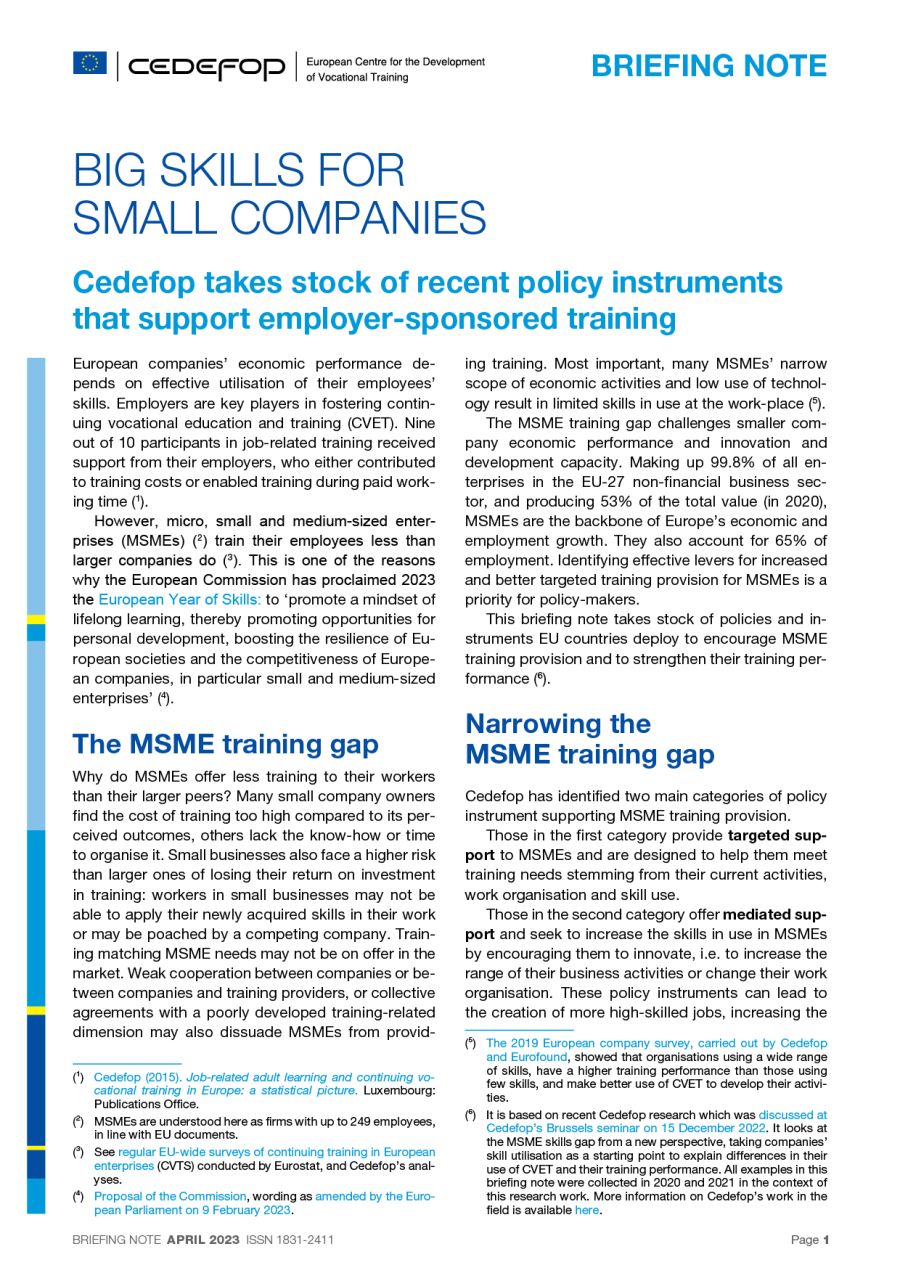Identifying effective levers for increased and better-targeted training at micro, small and medium-sized enterprises (MSMEs) is a priority for policy-makers across Europe. Cedefop looks at recent policy instruments supporting the provision of employer-sponsored training.
European companies’ economic performance depends on using and developing their employees’ skills. Employers are key in promoting continuing vocational education and training. Nine out of 10 participants in job-related training received support from their employers who either contributed to training costs or enabled training during paid working time.
However, MSMEs train their employees less than larger companies do. This ‘MSME training gap’ is due to various reasons, for example to many small companies’ narrow scope of economic activities and low use of technology which results in a limited use of skills at the workplace.
This fact challenges small companies’ economic performance and innovation capacity as compared to their bigger peers and affects European economies. Small companies make up 99.8% of all enterprises in the EU’s non-financial business sector, produce 53% of the total value (in 2020) and account for 65% of overall employment. They are the backbone of Europe’s economic and employment growth.
The new instruments supporting employer-sponsored training are presented in Cedefop’s latest briefing note, along with examples of best practices from various European countries.


